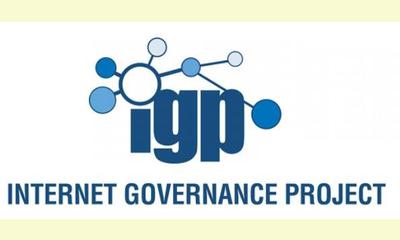|
|
The World Conference on International Telecommunications: An analysis
un articulo por Milton Mueller on the blog of the Internet Governance Project (excerpts)
We now know more about what led to the impasse at the World Conference on International Telecommunications (WCIT), and the scope of the fissure that it created. It is clear that nations will split 2 to 1 in favor of signing the International Telecommunication Regulation (ITR) treaty. The majority of the signatories are the developing countries in Africa, Asia (including China), the Middle East, Latin America, and of course Russia. The refuseniks are primarily developed, western economies; they are concentrated in North America, Europe and Japan, although they were joined by India and some other developing countries. Though smaller in number, refuseniks account for probably two-thirds of the telecommunications and Internet economy. Politically, this is a troublesome bifurcation, although its implications for internet governance may not be all that bad. (We will blog about the long-term implications later).

click on photo to enlarge
What triggered the split? More is known about this, too, but in the aftermath of WCIT facts are taking a back seat to spin. This blog post asks you to discount both the happy talk coming from the International Telecommunication Union (ITU) and the ridiculous claims from the US and its allies that the ITR revisions constituted an aggressive new push into Internet regulation by states. Below, we cut through the spin and explain how a phenomenon we will call ITU-phobia contributes to the polarization of Internet governance. . .
The ITU realist knows that ITU’s centrality as a technical standard developer has been in decline since the 1980s. It has not been in the lead on any widely adopted networking standard since the rise of the Internet. . . Most importantly, the ITU has a very tenuous nexus to the Internet and very few prospects of enlarging that nexus. It does not control Internet standards, routing processes, naming resources or numbering resources, and it never will. Unlike IETF, ICANN, the RIRs or Internet service providers, it has no leverage over how the Internet actually works. People who speak of an ITU takeover or major ITU threat can only do so by refusing to acknowledge this basic and irreversible fact. . .
One notable feature of ITU phobia is that it takes the alternative internet institutions off the hook. . . If the threat to the internet comes from the ITU, and not from a world of nation-states seeking more power for themselves, one needn’t worry about such things as ICANN’s Governmental Advisory Committee, the US CyberCommand, Israeli cyberweapons, the British Cleanfeed system, data retention and graduated response in the European Union, the Wikileaks financial boycott, and so on. . .
Let’s keep our eye on the ball. Internet freedom requires the construction of effective new, open transnational governance institutions and globally applicable legal principles that regulate and limit the power of states and private sector actors to abuse users. It requires liberalized communication industries and free trade in information services; multinational, multistakeholder pressure against censorship and surveillance. Those are tall orders. Obsessing over the ITU isn’t going to get us there.
[Editor's note: Readers are urged to read the entire blog on the Internet, as it provides much more detail than the excerpts here.
|








|
DISCUSSION
Pregunta(s) relacionada(s) al artículo :
Who Controls the Internet?,
* * * * *
Comentario más reciente:
There were many articles and blogs during and after the World Conference on International Telecommunications concerned that the ITU could "take over" the Internet.
But as some commentators pointed out, no one can "take over" the Internet, let alone the ITU.
For example here are comments from the blog "Wierd Things:
Plenty of wailing and gnashing of teeth has accompanied the mostly closed door ITU sessions in which the fate of the free web is supposedly being decided. The global communications group’s head is worried about stopping cyberwarfare and criminals using spyware to pull off heists. The world’s authoritarians and dictators are asking for less online anonymity and more control over what’s being said on the web. The bureaucrats are asking for more centralized oversight on the international level, believing that U.S.-based ICANN to be the internet’s self-appointed masters, despite the ICANN hosting a global advisory board representing over 100 nations. And none of the parties involved in trying to reshape the internet seem to know what they’re doing, almost as if they believe that the global communication networks is a series of tubes they can re-rout with executive orders served to some nerds with gravity-defying ties and black-rimmed glasses. The truth is that whatever they try to do to tame the internet is almost certainly doomed to fail.
First, as it’s been pointed out several times on this blog, filtering and inspecting data generated by web users is impractical, expensive, and won’t catch what those administering the mechanism are trying to catch. Want to try to deep packet inspect all the traffic coming into an IXP? Best of luck there tiger. You will be looking at oceans of data, much of it containing completely useless information, data about background processes, and encrypted transactions. . ... continuación.

|
|









